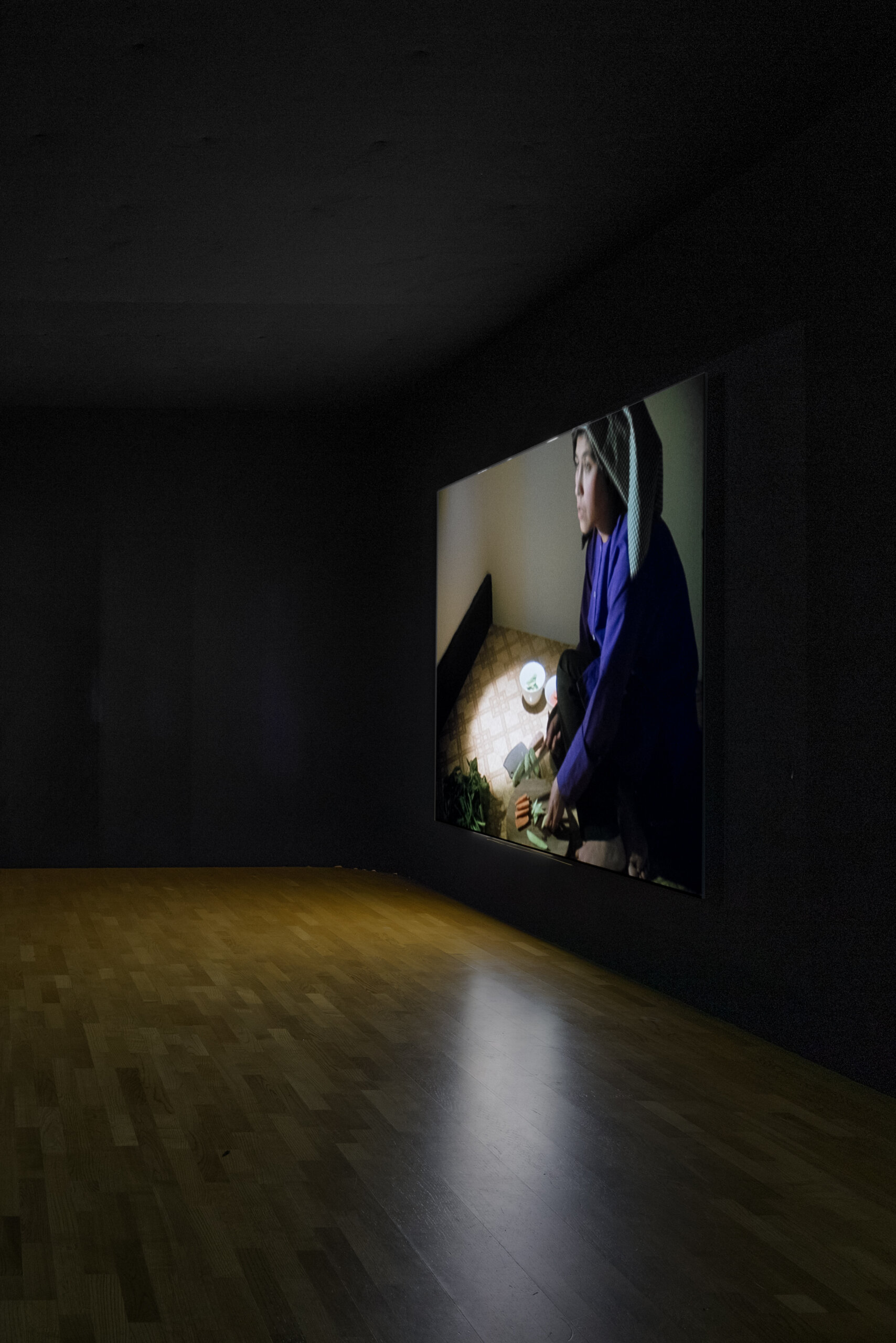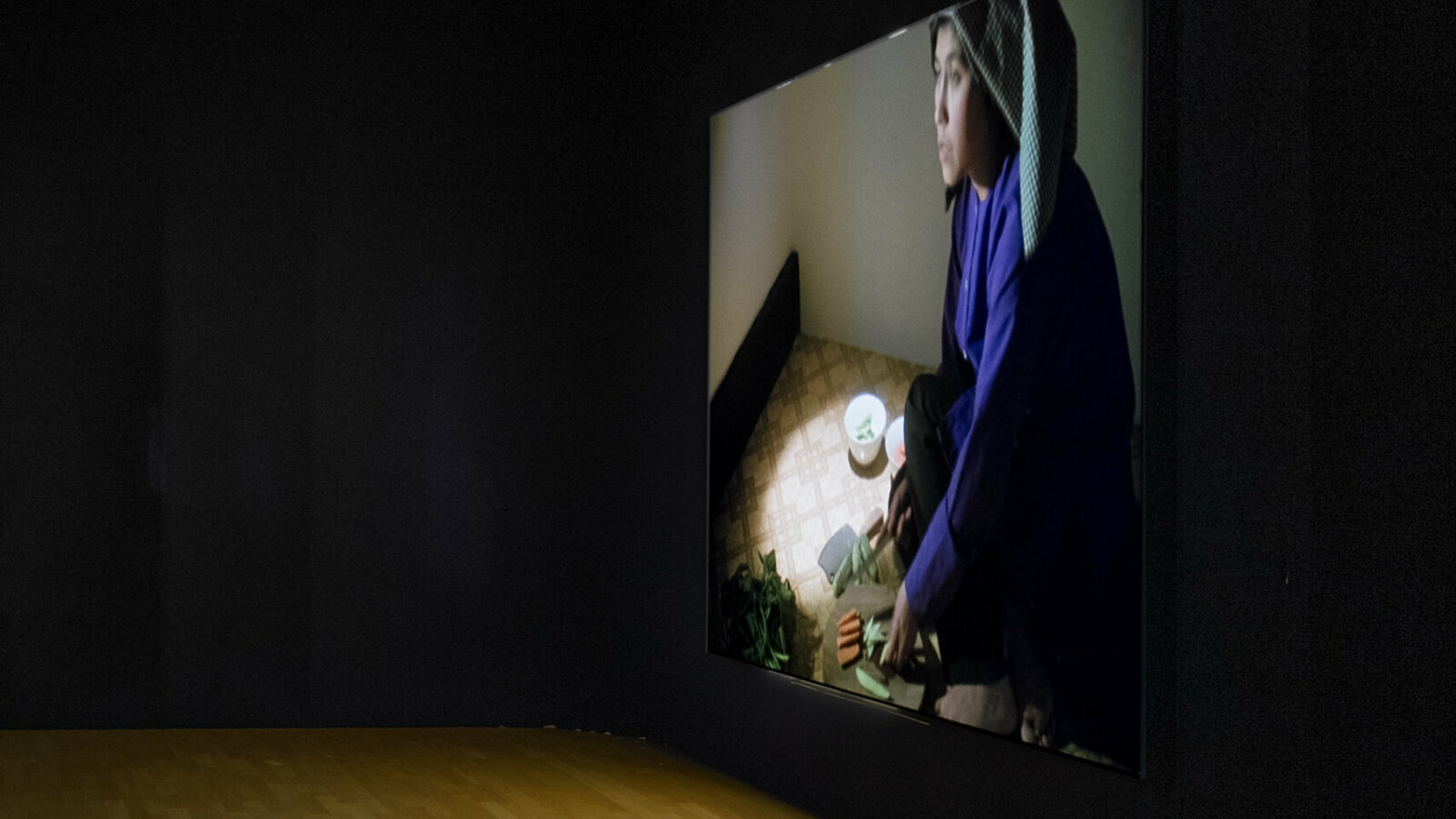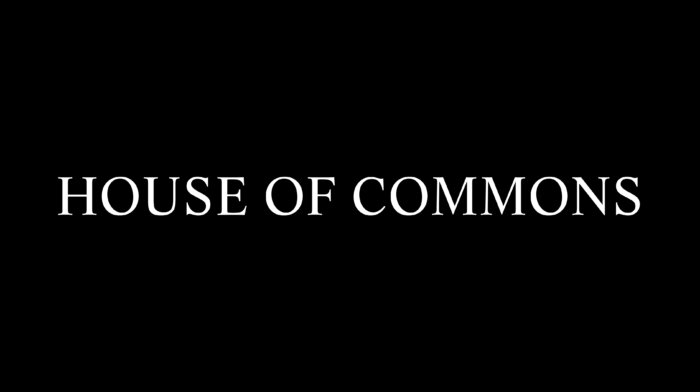Trinh T. Minh-ha (b. 1952, Hanoi, Vietnam) is an filmmaker, writer, composer and visual artist who lives and works in California, USA, where she teaches at the University of California, Berkeley’s Departments of Gender and Women’s Studies and of Rhetoric. Her practice explores cultural politics, post-coloniality, contemporary critical theory and feminism. Her genre-crossing films have been variously described as ethnographic or political documentaries, essay films and allegorical feature films. She investigates themes of post-and-neo-colonialism, identity and filmmaking, emphasising process and ambiguity over direct message. The recipient of numerous awards and grants, her work has been exhibited and published widely around the world.
Naked Spaces: Living Is Round, 1985
Surname Viet Given Name Nam, 1989
These two film works by Trinh T. Minh-Ha were produced in the 1980s and represent the struggles and resistance embodied in the everyday life of its subjects. Naked Spaces: Living Is Round is an attempt at a decisive break with the traditions of ethnographic filmmaking, a documentary film genre popular in the early 20th century, known for its depictions of rarely shown Indigenous peoples and cultures and later criticised for its ethnocentric gaze, the staging of its subjects, and its origins in colonising cultural practices. Through a wandering, non-objectifying and often sensuous gaze, Minh-Ha’s camera explores the rhythms and rituals of life in rural communities in six West African countries: Mauritania, Mali, Burkino Faso, Togo, Benin and Senegal. The film’s nonlinear structure lends itself to deliberate disorientation, questioning the packaging of knowledge and inviting the viewer literally to go into the dark in research and fieldwork. In Surname Viet Given Name Nam, Trinh explores the role of Vietnamese women both historically and in contemporary society. In this profoundly intimate documentary—at once personal and collective—, Minh-Ha uses dance, printed texts, folk poetry and the words and experiences of Vietnamese women in North and South Vietnam and in the United States. The film challenges official narratives on women’s conditions while questioning the politics of interviews, translation and subtitling in documenting. As in Naked Spaces, Surname Viet Given Name Nam explores themes of voice and language; dislocation and exile.

Images:
An installation photo of Trinh T. Minh-ha’s Surname Viet Given Name Nam.
Photo: MOMENTUM. Courtesy of the practitioner.



